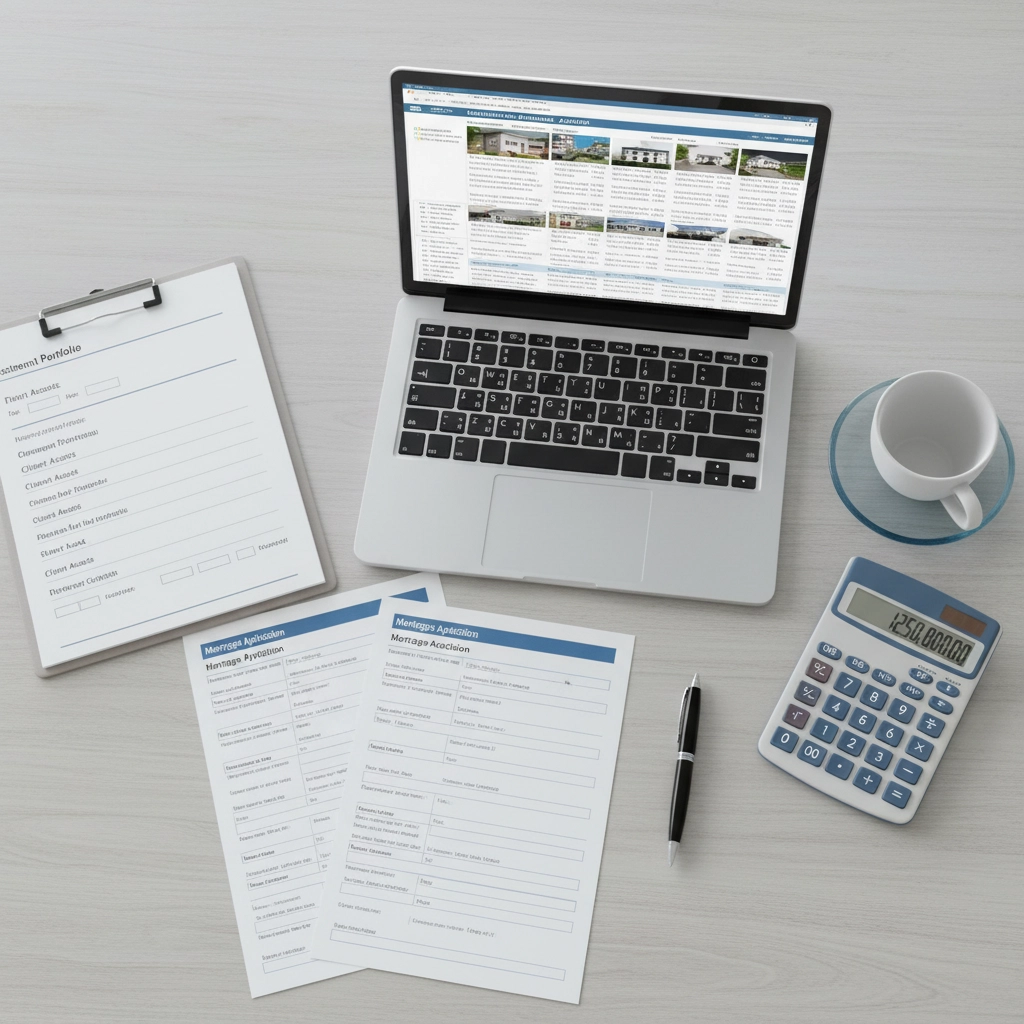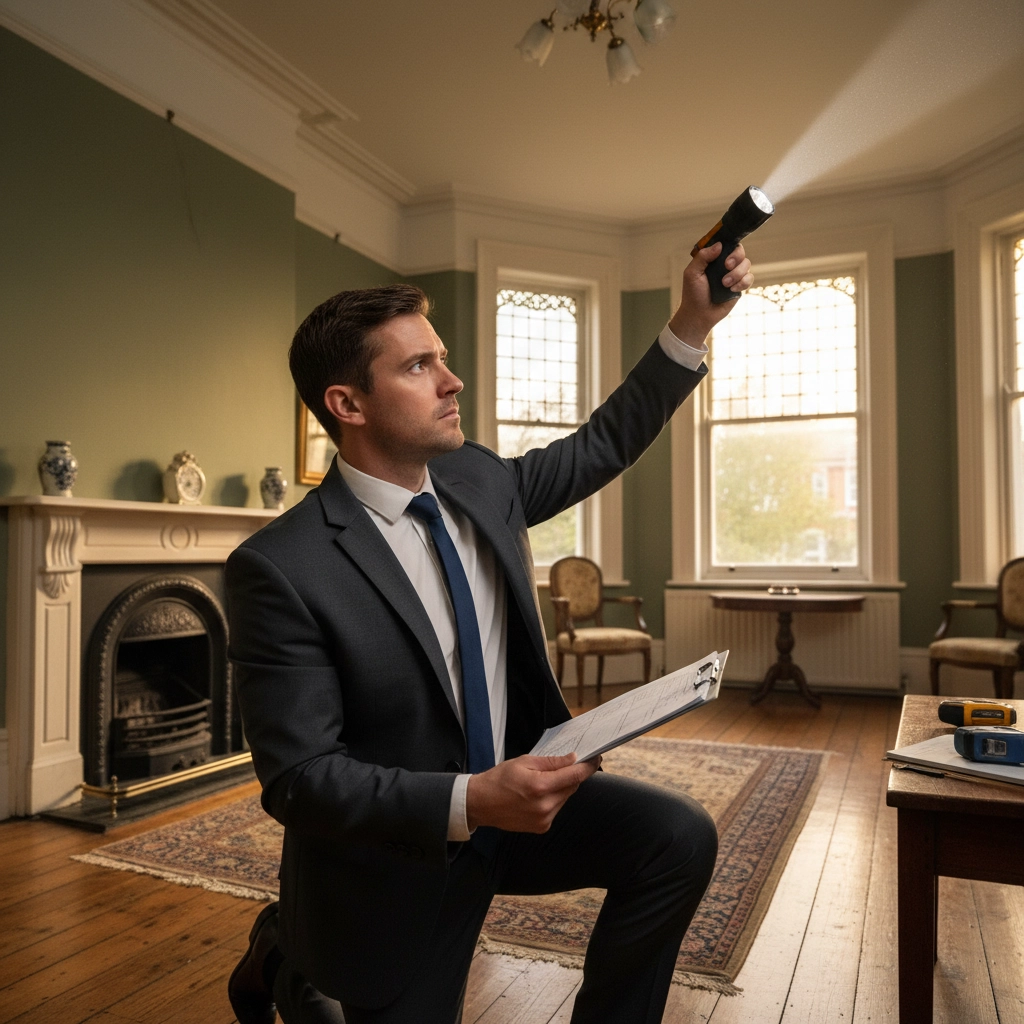Entering the world of UK property auctions can feel intimidating, but it’s one of the most effective ways to secure property deals below market value. Whether you’re a first-time buyer or an experienced investor looking to expand your portfolio, property auctions offer unique opportunities that traditional sales simply can’t match. With this Beginner’s Guide to UK Property Auctions: 5 Steps to Secure Your First Deal, you’ll be well-prepared to dive into this lucrative market.
At Palace Auctions London, we’ve guided thousands of buyers through their first auction experience. The key to success lies in thorough preparation, understanding the process, and approaching each auction with a clear strategy. This comprehensive guide will walk you through the five essential steps to secure your first property deal at auction.
Step 1: Research Properties and Master Auction Fundamentals
Your journey into UK property auctions begins with understanding how these events work and identifying suitable properties. Unlike traditional property sales, auctions operate on strict timelines and require immediate commitment from successful bidders.
Start by exploring auction catalogues from reputable auction houses. Download these catalogues well in advance: typically 4-6 weeks before the auction date: to give yourself adequate research time. Focus on properties that align with your investment goals, whether you’re seeking a buy-to-let opportunity, a renovation project, or your first home.

Understanding auction terminology is crucial for first-time buyers. The guide price represents the auctioneer’s opinion of where bidding might start, while the reserve price is the minimum amount the seller will accept. The reserve price is typically set at or slightly below the guide price but can be up to 10% higher in some cases.
Legal packs contain essential information about each property, including title deeds, planning permissions, and any legal restrictions. These documents are available for download or inspection at the auction house offices. Reading these thoroughly can reveal potential issues that might affect your bidding strategy or future plans for the property.
Research the local area thoroughly. Check recent sold prices for similar properties, understand local rental yields if you’re investing, and assess the neighbourhood’s growth potential. Online property portals, local estate agents, and council planning departments are valuable resources for this research.
Step 2: Secure Your Finances and Understand Costs
Financial preparation is perhaps the most critical step in the auction process. Unlike traditional property purchases where you might have weeks to arrange financing after agreeing on a price, auction winners must exchange contracts immediately and pay a deposit on the day.
Mortgage pre-approval is essential unless you’re purchasing with cash. Speak with mortgage advisors who understand auction purchases, as some lenders have specific requirements or restrictions. Obtain a formal mortgage offer or agreement in principle that covers your maximum bidding limit.

Calculate your total budget carefully. Beyond the purchase price, you’ll need to account for:
- Buyer’s premium: Typically 1-3% of the purchase price plus VAT
- Deposit: Usually 10% of the purchase price, payable on auction day
- Legal fees: Solicitor costs for contract exchange and completion
- Survey costs: Professional inspections and valuations
- Renovation budget: Many auction properties require work
- Stamp duty: Based on the purchase price
Set aside immediate access funds for auction day. Some auction houses may temporarily freeze funds on your debit card to ensure you can pay if you become the successful bidder. Have your deposit money readily available in a current account or arrange a banker’s draft if required.
Consider the ongoing costs too. Auction properties often require immediate work, ongoing maintenance, or may have higher insurance premiums. Factor these expenses into your overall investment calculations to ensure the property remains financially viable.
Step 3: Inspect Properties and Conduct Due Diligence
Never bid on a property you haven’t thoroughly inspected. This golden rule of property auctions could save you from costly mistakes and hidden problems that might not be apparent from photographs or descriptions alone.
Attend all scheduled viewing days for properties you’re considering. These are typically held in the weeks leading up to the auction and may be your only opportunity to inspect the property before bidding. Arrive early to avoid crowds and take comprehensive notes about the property’s condition.

If you cannot attend viewings personally, consider sending a qualified surveyor, experienced builder, or trusted business partner. Their professional eye can identify structural issues, necessary repairs, or potential planning problems that might escape an untrained observer.
Pay particular attention to:
- Structural integrity: Look for cracks, damp, or signs of subsidence
- Electrical and plumbing systems: Check for outdated or dangerous installations
- Planning permissions: Verify any extensions or alterations have proper consent
- Access rights: Ensure there are no disputes over boundaries or access
- Local authority issues: Check for enforcement notices or planning disputes
Create a detailed inspection checklist and photograph any concerns. This documentation will help you make informed bidding decisions and plan post-purchase renovations if you’re successful.
Review the legal pack multiple times. Look for restrictive covenants, rights of way, or other legal matters that might affect your plans for the property. If anything seems unclear, consult with a solicitor experienced in auction purchases before bidding day.
Step 4: Register to Bid and Master the Auction Process
Proper registration is mandatory for all auction participants. This process typically opens several weeks before the auction and requires specific documentation and procedures that vary between auction houses.
Required documentation usually includes:
- Valid photo identification (passport or driving licence)
- Proof of address (recent utility bill or bank statement)
- Proof of funds (bank statements or mortgage agreement)
- Signed registration forms and terms and conditions

Complete your registration well ahead of the auction date. Some auction houses have cut-off dates for registration, and last-minute applications might not be processed in time. Once registered, you’ll receive a bidder’s paddle or number that identifies you during the auction.
Understand what happens if you become the successful bidder. The moment the auctioneer’s gavel falls, you’re legally committed to purchase the property. You’ll need to:
- Sign the contract immediately
- Pay the deposit (typically 10% of the purchase price)
- Complete the purchase within 28 days (standard timeframe)
- Pay any buyer’s premium and associated fees
Arrange for your solicitor to be available on auction day or shortly after. They’ll need to handle the immediate contract exchange and begin completion procedures. Some buyers arrange for their solicitor to attend the auction or be available by phone.
Familiarize yourself with the auction house’s specific terms and conditions. These govern the sale process, payment terms, and what happens if problems arise. Understanding these terms protects your interests and ensures you comply with all requirements.
Step 5: Develop Your Bidding Strategy and Execute Successfully
Your bidding strategy can determine whether you secure a great deal or miss out on your target property. Successful auction bidders combine preparation, discipline, and tactical awareness to achieve their goals.
Set your maximum budget before auction day and stick to it. Write this figure down and keep it visible during bidding to resist the temptation to exceed your limit in the heat of the moment. Factor in all costs: purchase price, buyer’s premium, immediate repairs, and your financing costs: to determine your true maximum bid.
Arrive at the auction venue early to familiarize yourself with the layout and atmosphere. Listen to the auctioneer’s announcements about any changes to properties, sale conditions, or procedures. These last-minute updates can significantly affect your bidding decisions.

Consider these bidding tactics:
- Start conservatively: Let other bidders establish the initial price level
- Bid confidently: Make clear, decisive bids that the auctioneer can easily see
- Watch other bidders: Observe their behavior for signs of their maximum limits
- Strategic pauses: Brief hesitation can sometimes discourage competing bidders
- Final push: Be prepared for one last bid if you’re close to securing the property
Stay calm and focused throughout the process. Auction environments can be exciting and pressurized, but emotional bidding often leads to overpaying. Trust your research and preparation: if the bidding exceeds your budget, walk away. There will always be other opportunities.
If you’re successful, remain at the auction until you’ve completed all immediate requirements. Sign the contract, pay your deposit and fees, and collect all relevant documentation. Celebrate your success, but remember that completion day is just weeks away, and preparation continues.
Your Next Steps to Auction Success
Successfully navigating your first UK property auction requires preparation, patience, and persistence. By following these five steps: thorough research, financial preparation, careful property inspection, proper registration, and strategic bidding: you’ll be well-positioned to secure your first property deal.
Remember that every experienced property investor started with their first auction. The combination of preparation and professional guidance makes the difference between success and disappointment. At Palace Auctions, we’re committed to helping first-time buyers navigate this exciting market with confidence.
Start your auction journey today by researching upcoming properties and attending your first auction as an observer. This hands-on experience will build your confidence and help you identify the perfect opportunity for your inaugural bid.
…


